- No ticketed spectators.
- No overseas visitors.
- Do-it-yourself medal ceremony with no customary handshakes or hugs.
The organisers of modern Olympics have entered their share of challenges over the decades - from a disruption due to World War II, political boycotts in the times of Cold War in 1980 and ‘84 Games to the humongous logistical challenges every four years. None of them were as grave as the one in Tokyo, where the biggest headache seems to be if the Games can be successfully completed on August 8.
However, never did the Games have to grapple with uncertainty as it would really go ahead even with less than a month to go but now with less than 48 hours to go for the opening ceremony - and some of the events having already got underway - it’s time to say ‘Let the Games begin.’
The restrictions in view of the Covid-19 pandemic, which has witnessed a steady rise in positive cases over the past week in the Village to give the organisers 'sleepless nights,' means that the carnival atmosphere around the Games will be heavily compromised - and it will be almost a surreal experience to have an Olympic contest going on without the national flags and the jingostic spirit one associates with Olympics. Will it actually deter the athletes in terms of giving their best - especially in disciplines like swimming and athletics - where the crowd support pumps in the adrenalin rush?

In a chat with Gulf News, Narendra Batra, President of Indian Olympic Association (IOA) had put things in perspective before his departure with the contingent: ‘‘There is no doubt that things will not be the same but the athletes should be thankful that the Olympics in eventually happening.’’
The Games, as of date, will feature its full slate of 33 sports and 339 medal events. Altogether 11,000 athletes from nearly 200 countries will be allowed to stay at the Olympic Village only for the duration of their competition and they are being subjected to regular coronavirus testing and temperature checks throughout their stay in Japan. They are also barred from using public transportation or visiting any public places that aren’t approved by Olympic officials.
Marquee events
All sporting events are deemed equal in Olympics, but some are more equal than others - and it will be no different this time with swimming and gymnastics ruling the roost in the first week of the Games and track & field calling the shots in the final week.
With nearly 1,000 competitors from 170 or so nations, swimming will be among the most-watched sports in the opening days along with gymnastics - a favourite of fans and TV networks alike.
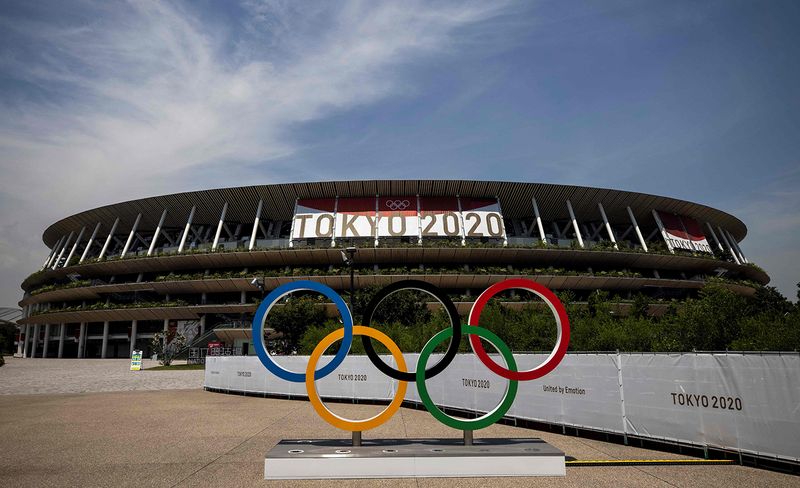
The track and field will miss out on the starpower of a Usain Bolt, who had dominated the last three Olympics, but will still have more than 2,000 athletes vying for medals in 47 events, the most of any Olympic sport.
The men and women’s Olympic basketball tournaments are always one of the hottest tickets of every Summer Games, especially since professionals began competing in 1992.
After being contested in 1900 and ‘04, golf disappeared off the Summer Games platform for more than a century. With the sport’s growth and expansion across the globe in recent decades, it made its long-awaited Olympic return at the Rio Games, but many of the game’s top players decided not to compete.
How many medals are at stake?
In all, the Tokyo Games will feature 33 sports, 50 disciplines and 339 medal events, including (number of events in parenthesis):
Artistic gymnastics (14), artistic swimming (2), archery (5), badminton (5), baseball and softball (2), basketball (2), 3-on-3 basketball (2), beach volleyball (2), BMX freestyle (2), BMX racing (2), boxing (13), canoeing (16), cycling (22), diving (8), equestrian (6), fencing (12), field hockey (2), football (2), golf (2), gymnastics (18), handball (2), judo (15), karate (8), mountain biking (2), pentathlon (2), rhythmic gymnastics (2), road cycling (2) rowing (14), rugby (2), sailing (10), shooting (15), skateboarding (4), sport climbing (2), surfing (2), swimming (37), table tennis (5), taekwondo (8), tennis (5), track and field (48), track cycling (12), trampoline gymnastics (2), triathlon (3), volleyball (2), water polo (2), weightlifting (14) and wrestling (18).
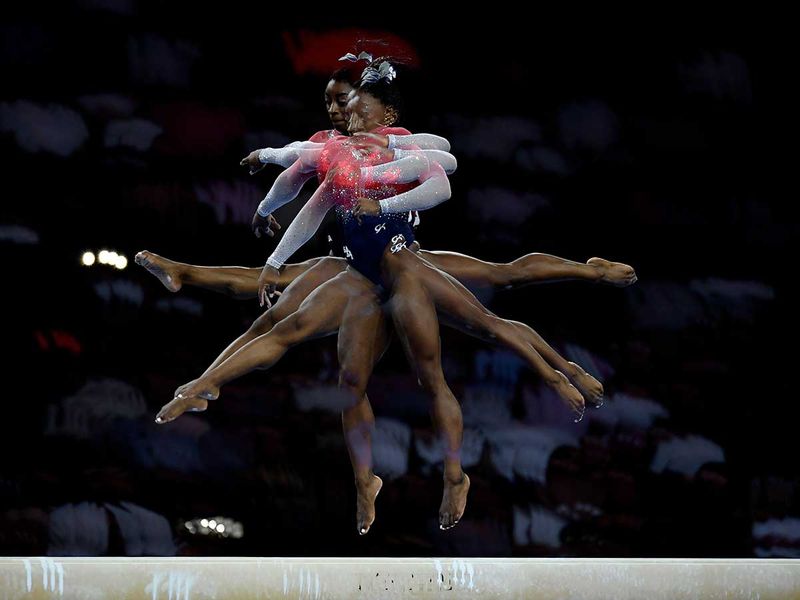
How the Olympic powerhouses will fare in Tokyo
Shyam A. Krishna, Senior Associate Editor
Take a trip through 125 years of modern Olympics, and you will find that the United States have been the most successful country. With more than 2500 medals (including at least 1000 gold), the US haul from 27 Summer Games outstrips the nearest competitor, the former Soviet Union, who won more than 1100 medals. The Soviet Union have ceased to exist, but Russia continue to be a sporting powerhouse despite losing a lot of ground to Great Britain and China.
There’s no stopping the US in Tokyo too as they are expected to top the medal count for their seventh successive time. With 613 sportspersons, the US are among the teams with a large contingent, including many high-profile sportspersons who are potential gold winners.
MORE ON TOKYO OLYMPICS
- Peter Cowen: Onwards to the Olympics after thrilling week at The Open
- Tokyo Olympics 2020: UAE contingent may be small, but nurse big dreams
- Tokyo Olympics 2020: We need to get rid of the nerves quickly in the opener, says Sreejesh
- Tokyo Olympics 2020: South Koreans stay the course to dominate ladies golf
- Tokyo Olympics 2020: Making history for Serbia outweighs empty seats for Novak Djokovic
Simone Biles, the most decorated American gymnast, aims to defend her 2016 Olympic title in Tokyo and win a few more gold medals. Five-time gold medallist Katie Ledecky, Caeleb Dressel, Simone Manuel and Lilly King are swimmers with gold medal prospects. In athletics, Allyson Felix (400M), Sydney McLaughlin (400M hurdles), Grant Holloway (110M hurdles), Noah Lyles (200M) and Erriyon Knighton (200M) are potential medal winners.
In Rio, Great Britain came second with 67 medals. Although a strong performance is expected in Tokyo too, the 376-strong squad may not land as many medals. Gold hopes rest on cyclist Laura Kenny, taekwondo athlete Jade Jones, rower Helen Glover, equestrian rider Charlotte Dujardin and sprinter Dina Asher-Smith.
Russia won’t be at the Tokyo Games after a doping scandal led to their disqualification from international events till 2020. But more than 330 eligible Russian sportspersons, including 16-year-old gymnast Viktoria Listunova and 56-year-old dressage rider Inessa Merkulova, will participate under the banner of the Russian Olympic Committee. With gold medals expected in gymnastics, artistic swimming, wrestling, fencing and judo, the ROC team are strong contenders to finish third on the medal table.
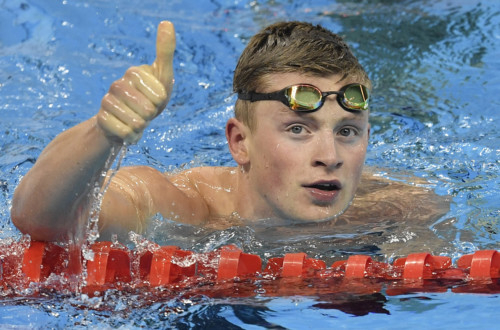
China have been a formidable force in recent times, but Great Britain edged them to third place in Rio on the strength of an extra gold. However, the Chinese are expected to bounce back in Tokyo by fielding a giant squad of 777 athletes and staff. In the absence of triple Olympic gold medallist Sun Yang, who was banned for more than four years after a second doping violation, Zhang Yufei will head the challenge in the swimming pool. Diving, table tennis and weightlifting are expected to usher in a medal rush.
Germany, who finished fifth in 2016 with 42 medals, are likely to skid this year as France, Australia, and the Netherlands can scale the medal table. With a squad of 425 athletes and officials, Germans target a medal haul from 32 events.
Long jump world champion Malaika Mihambo, hurdler Gesa Krause, 10,000M runner Konstanze Klosterhalfen and javelin thrower Johannes Vetter lead the medal hunt in athletics. Three-time Olympic champion Sebastian Brendel and multiple medallist Ronald Rauhe are odds-on favourites to win in canoe racing. Three-time world champion Emma Hinze and multiple Olympic medallist Maximilian Levy will be the ones to beat on the cycling track.
Host nations generally tend to do well. Count on Japan for an improved show, but not enough to keep China out of second place.
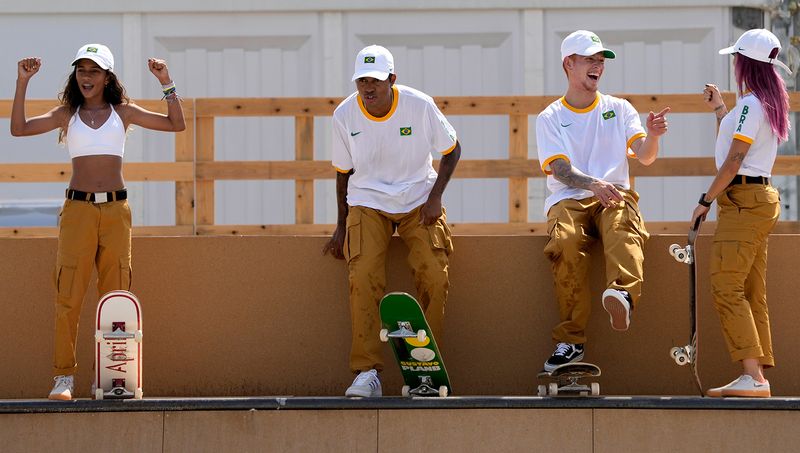
Five new sports in Tokyo and all you need to know about them
By Imran Malik, Assistant Editor
We’re not quite at the stage where tying your shoelaces the fastest is an Olympic sport, but there was a time when such a thing would not have looked out of place.
Back in the 1900 Paris Games, they had a host of oddball sports. One such was Pigeon Shooting. No, not clay pigeons, real actual ones that try to steal your sandwiches or decorate freshly washed cars. The birds were released in the air and competitors had to shoot them and if they missed two consecutive shots they were eliminated. Belgium’s Leon de Lunden won the gold medal after he shot 21 pigeons. More than 300 birds were killed and after protests from animal rights activists clay pigeons were used at subsequent Games.
There have been other peculiar sport such as Horse Long Jump and Club Swinging and it is true to say that the Olympic Games, which have been taking place for over 100 years, haven’t always looked the same. And, they’re changing again as making their debut in Tokyo will be several new events. Athletes will be competing for the gold in surfing, sport climbing, karate, baseball and skateboarding.
Granted, these are not nearly as strange as some so-called sports from the past, but it’s nice to see more medal opportunities being given to athletes. Tokyo will have a record 33 sports (there were just 10 in the first modern Olympic Games in 1896 in Athens) but how does a new sport get added?
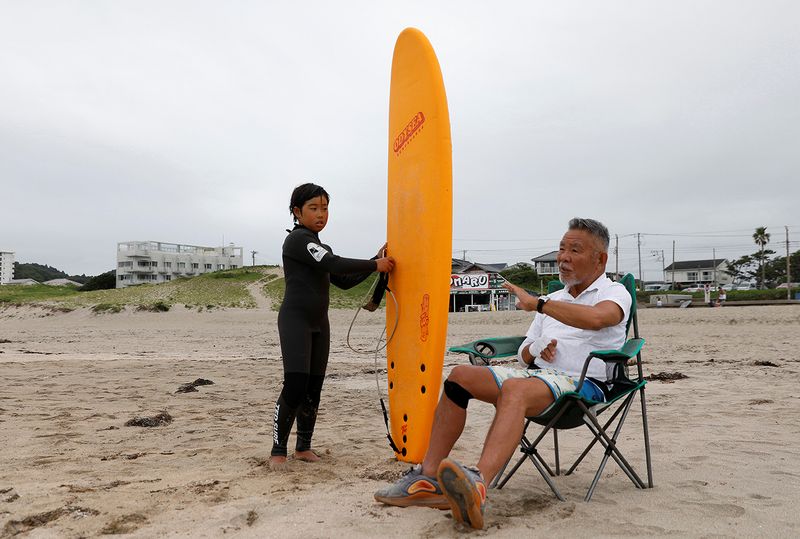
Well, according to the International Olympic Committee, a sport has to be governed by the International Federation and practiced widely around the world. So, what do we know about the new ones and the athletes to look out for? Read on…
Baseball
This is huge obviously in the US - but also in Japan. In fact, the Nippon Professional Baseball league is second only to Major League Baseball. Therefore it isn’t a surprise to see the sport make a comeback in Tokyo (it was last seen 13 years ago at the 2008 Beijing Olympics). The Americans will be favourites to win gold but the Japanese cannot be ignored. Baseball will be a men’s only competition while Softball will be for women. The Baseball tournament takes place from July 27 until August 7 while Softball will take place from July 24 to July 27.
Karate
It originated in Japan and will be making its debut in Tokyo featuring two disciplines: kata (where athletes are judged on technique) and kumite (where they compete head to head). Ones to watch are Americans Ariel Torres and Sandra Sanchez of Spain. Karate events are scheduled for August 4 to August 7.
Sport climbing
This will require solid strength to scale steep ascents, along with flexibility and skill. The climbers will be kept in isolation so they do not gain an advantage by watching how their opponents approach their wall. The climbers to watch include Adam Ondra of the Czech Republic, Janja Garnbret of Slovenia, Miho Nonaka of Japan and Shauna Coxsey of Britain. The events take place from August 3 to August 6.
Surfing
Taking place at Tsurigasaki Beach in Ichinomiya, there will be men’s and women’s events and as no waves will be exactly alike, athletes will be competing against each other in the variable, ever-changing conditions dictated by nature. Look out for Kolohe Andino from Team USA, Gabriel Medina of Brazil, and Stephanie Gilmore of Australia. Surfing events are scheduled for July 24 to July 31.
Skateboarding
The street sport is going mainstream and has already been approved for the 2024 Paris Olympics. There will be two skateboard disciplines in Tokyo - park and street with each having judges scoring the runs. Skateboarders to watch include Nyjah Huston and Mariah Duran from Team USA, Yuto Horigome of Japan and Margielyn Didal of the Philippines. Competitions will take place from July 24 to August 4.
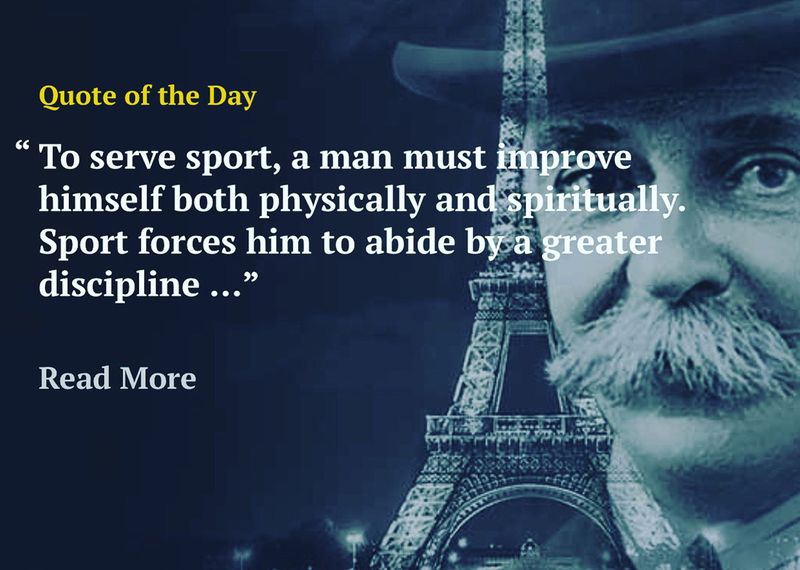
We’ve actually enjoyed the Olympics for far longer than 125 years…
By Imran Malik, Assistant Editor
There are many historical facts out there that are pretty hard to believe. For instance, did you know that Hitler, Stalin and Mussolini were all nominated for the Nobel Peace Prize? Or that Cleopatra - the Queen of Egypt - wasn’t Egyptian? And that the word ‘gymnasium’ comes from the Greek word “gymnós” which means naked?
The latter must have left you wondering why I would bring up such a random fact, well, it is because in ancient Greece, sporting events involved nudity. In fact, this was one of the major Olympic traditions. Nudity was a sign of fearlessness, courage and power.
According to historians, the Olympics date as far back as 776 BC beginning in rather modest fashion (apart from the nudity…) and as you can imagine resembled nothing of the spectacle as we know it today. One of the earliest games on record was horse and chariot racing while eventually other more familiar sports such as boxing and wrestling were added.
However in AD 394, Roman emperor Theodosius I officially ended the Games. It would be over 1500 years later before they were revived thanks to Pierre de Coubertin, aka the father of the modern Olympic Games. He wanted to resume the Games in 1900 in his native Paris but delegates from over 30 countries voted for a 1896 start and chose Athens as the first host nation.
Altogether, 280 participants from 13 countries gathered to compete in 43 events which included track and field, swimming and gymnastics at the Panathenaic Stadium. The US Team dominated and the Games were deemed a huge success. A second Olympiad was quickly scheduled to be held in France where the number of competitors quadrupled that of Athens.
Over the years, the Games kept growing and in 2004 they returned to Athens with over 11,000 athletes from 200 countries competing. Today, there are more sports, more participants, and more medals than ever before and there is no doubt that the Olympics are a great way for countries to display their sporting skills to the rest of the world. Long gone are the ways of 1896 when participants would barely know the rules of an event – now, they train for years hoping to become the best in the world.
Did you know?
Winners didn’t get gold medals
The 1896 Games winners were presented with silver medals, olive branches and certificates while the runners-up got bronze medals and laurel branches. What about those who came third? They went home with nothing. It wasn’t until the 1904 Games in St. Louis that the Olympic tradition of awarding gold, silver and bronze medals began.
No female competitors in 1896
International Olympic Committee president Pierre de Coubertin believed female participation would be indecent and so it was an all-male affair in 1896. It was at the 1900 Paris Games where women made their debut in the golf and tennis events.
Meaning of the five rings
The five Olympic rings are symbolic of the five continents while the colours chosen for them all appear on the flags of all the competing nations around the world.
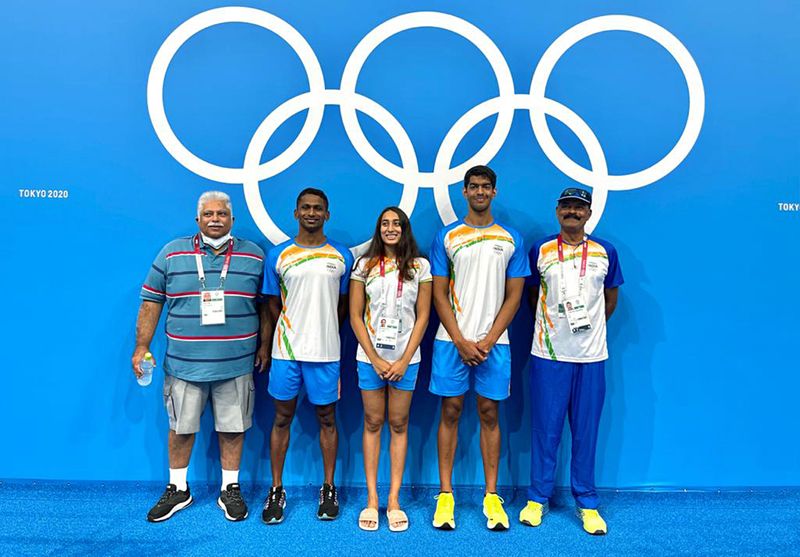
Can India live the Olympic dream?
Shyam A. Krishna, Senior Associate Editor
What’s India’s Olympic dream? It should be to win a medal in every sport. At least in every sport an Indian competes in Tokyo. But that’s not realistic since not all the 128 Indians at the 2020 Olympic Games are prospective medal winners. Many of them are there for international exposure and experience. Which means India will only have a handful of prospective medal winners.
So, realistically, how many medals can India win? If past experience is any indication, a haul of more than five medals would exceed expectations. Five medals! That would be a poor performance for most countries. But not for India. Especially when the last outing at Rio de Janiero yielded two medals: a silver for badminton star P.V. Sindhu and a bronze for wrestler Sakshi Malik.
When a country wins two medals in 2016, what would be a realistic target in four years. Even five medals would be ambitious. That’s doesn’t speak well of India as sporting nation.
India is a country of 1.4 billion, but it’s no sporting powerhouse. Cricket is the most popular sport in the country simply because of the phenomenal success of the national team. Hockey is India’s national sport, one that fetched eight of the nine Olympic gold medals; the other was won by shooter Abhinav Bindra. It still rouses passion, but India haven’t won a major tournament in years. And it’s unlikely to win in Tokyo too. Hockey’s Olympic drought of 41 years will continue.
In many ways, hockey’s plight is emblematic of India’s sporting travails. A string of fine performances are followed abject failures at major events. Other sports fare even worse
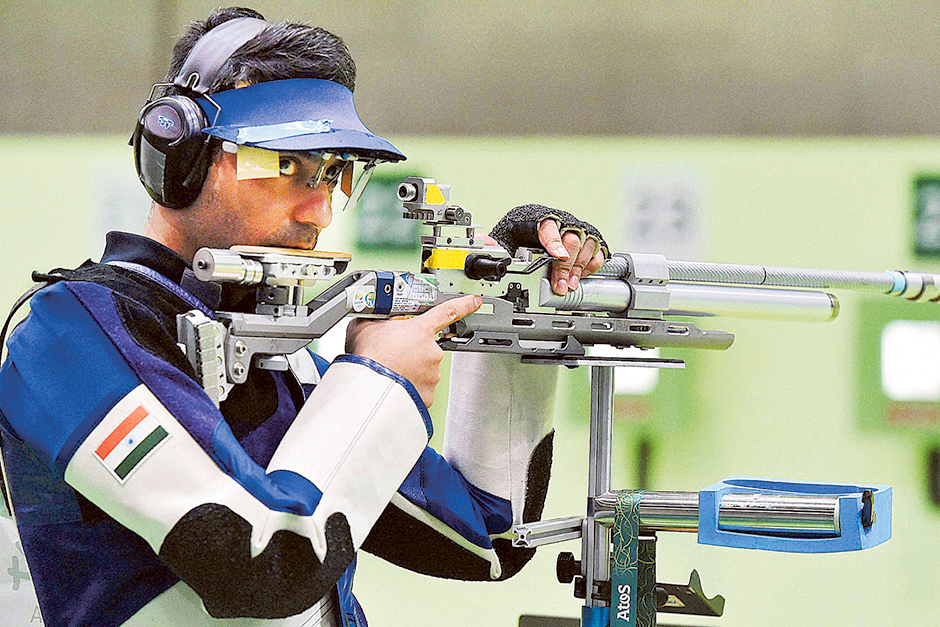
Endemic corruption is at the root of all ills in Indian sport. The sports bodies are managed badly and funds squandered; nepotism and favouritism prevail in electing office-bearers and selecting national squads.
When the sport and the country are ill-served, how can it produce champions. But there have been champions, world champions. These are not products of the shambolic system. They are rays of individual brilliance who shone with the support of their parents, some of whom are former sportspersons.
World beaters on their own steam
These are the world-beaters in Indian sports. Wilson Jones, Michael Ferreira and Geet Sethi in billiards, Leander Paes, Mahesh Bhupathi and Sania Mirza in tennis, Prakash Padukone, P. Gopichand, Saina Nehwal and P.V. Sindhu in badminton, Abhinav Bindra in shooting and several others scaled sporting heights on sheer dint of hard work and talent. No Indian sports body can claim to have played a role in their rise.
There’s a system in Indian sport, but it’s not working. The Sports Authority of India have centres in several parts of India. Coaches are imported and sportspersons are provided excellent training facilities, but the results have been dismal. Because all the support comes rather late.
Here’s where sports management makes a difference. If the sports bodies are managed by professionals and if they are accountable, India will have a system that produces results. Till then, India’s Olympic dream will remain a pipe dream.
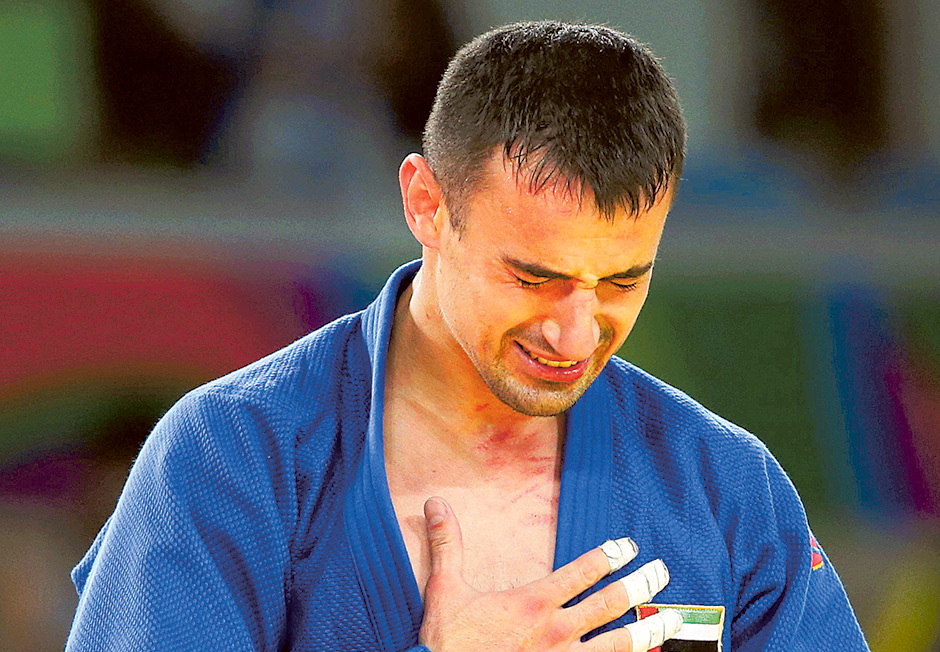
The UAE: Miles to go in their Olympic journey
By Gautam Bhattacharyya, Senior Associate Editor
It will be the 10th Olympics appearance for the UAE, but the young country - which is in its 50th year - still have miles to go before they can be considered as a force to reckon with.
The country has two medals so far, with Sheikh Ahmad Bin Mohammad Bin Hasher Al Maktoum landing them a gold medal at the double trap event in shooting in Athens 2004 while judoka Sergiu Toma - a naturalised UAE citizen - claimed a bronze in the men’s 81kg event in Rio 2016. There have been, however, a few other redeeming moments like in London 2012 where the UAE national football team qualified for the Games for the first time.
They have sent a small, six-member squad of atheletes and will pin their hopes on a pair of experienced judokas, Victor Scvortov and Ivan Remarenco, for a possible shot at a medal in Tokyo. The other athletes are young swimmer Yousuf Al Matrooshi (100 metres freestyle), sprinter Hassan Al Noubi (100 metres), discus thrower Fatima Al Hosani and skeet shooter Saif Bin Futtais.
The Moldovan duo of Scvortov and Remarenco, along with medallist Toma, had been naturalised citizens of the UAE since 2013 and have substantial international experience to challenge for a model at the highest level. Scvortov, now 33, a bronze medallist at the 2014 World Judo Championships and at 2018 Asian Games in Jakarta, will defend UAE colours in the 73kg category on July 26.
Remarenco, a bronze medallist at the 2014 World Judo Championships, will participate in the over 100-kg event on July 30.
from World,Europe,Asia,India,Pakistan,Philipines,Oceania,Americas,Africa Feed https://ift.tt/2UIMWFS
No comments:
Post a Comment